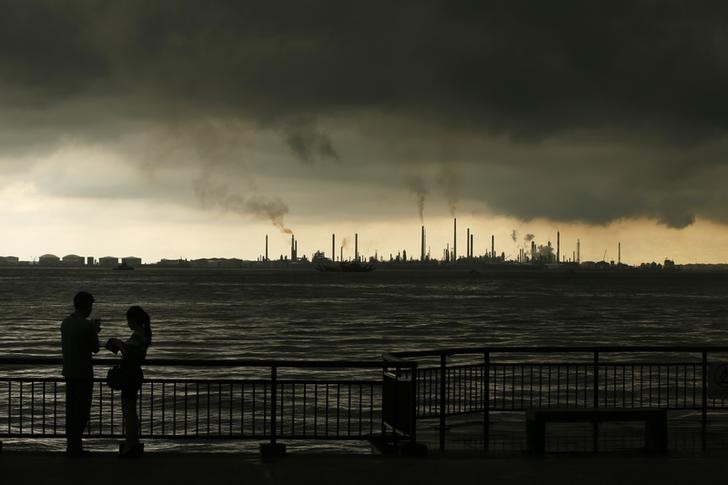Gold prices edge higher with focus on Ukraine-Russia, Jackson Hole
* Africa faces lower output, disappointing bid rounds
* Changes include revisions to taxes and royalties
* Cheaper renewables, demand "peak" driving change
* Nigeria raised amount firms pay government for deepwater
By Libby George
CAPE TOWN, Nov 11 (Reuters) - Lower prices and increasing
competition for investment are driving many African states to
make it easier and cheaper for overseas companies to keep their
oil and gas output flowing.
From Ghana to Gabon, governments are adjusting terms to lure
picky investors who are also increasingly concerned about
long-term demand for fossil fuels as renewable energy gains
ground.
The shift follows declining oil production in Angola and
Cameroon and disappointing bid rounds in Ghana. It also marks an
recognition that the era of $100 per barrel oil is over.
"Because of increased competition for investment in Africa,
we are changing our strategy," Mohammed Amin Adam, Ghana's
deputy minister for petroleum, said at last week's Africa Oil
Week in Cape Town.
Ghana's Adam was not alone in announcing plans to revise oil
and gas licensing laws in an effort to spur output. Ministers from Angola, Cameroon and Gabon also stressed
changes to legal and fiscal terms to boost their own production.
"We are aware that oil companies have to spend a lot of
money. That is why we are careful in the way we design our
(terms) to have it as a win-win," Gabon's petroleum minister
Noel Mboumba said at the event.
As renewables and efforts to cut fossil fuel consumption
gain ground, there are also growing concerns that the world will
not need all of Africa's oil. "We don't know how much new supply we're going to need. So
obviously everybody is going to have to be competitive for
that," Andrew Latham, vice president of global exploration at
Wood Mackenzie, said.
FRESH APPROACH
Ghana plans to allow companies more leeway in where and when
they can drill, while Angola is revising local content laws and
privatising oil assets. Cameroon's senate in April approved a reform to replace its
1999 petroleum code, sweetening tax terms for oil and condensate
development and allowing companies to recoup "exploration
expenses" from production sharing contracts.
Gabon revised its fiscal terms to reduce the government take
for shallow and deepwater concessions and increased the
cost-recover limits for companies.
But not all African producers are sweetening the deal.
Nigeria, the continent's largest producer, last week
increased the amount oil companies pay the government for
offshore production, while an overhaul of its oil and gas terms
has languished for more than a decade. Senate president Ahmad Lawan said the revisions would raise
revenue while allowing companies to make money - and the
government has promised to pass the broader bill next year.
Companies and analysts said reforms are needed. "The continent has to compete for capital with other areas,"
said Mike Sangster, head of Nigeria for French oil major Total.
"It's important that the regulators understand that."
